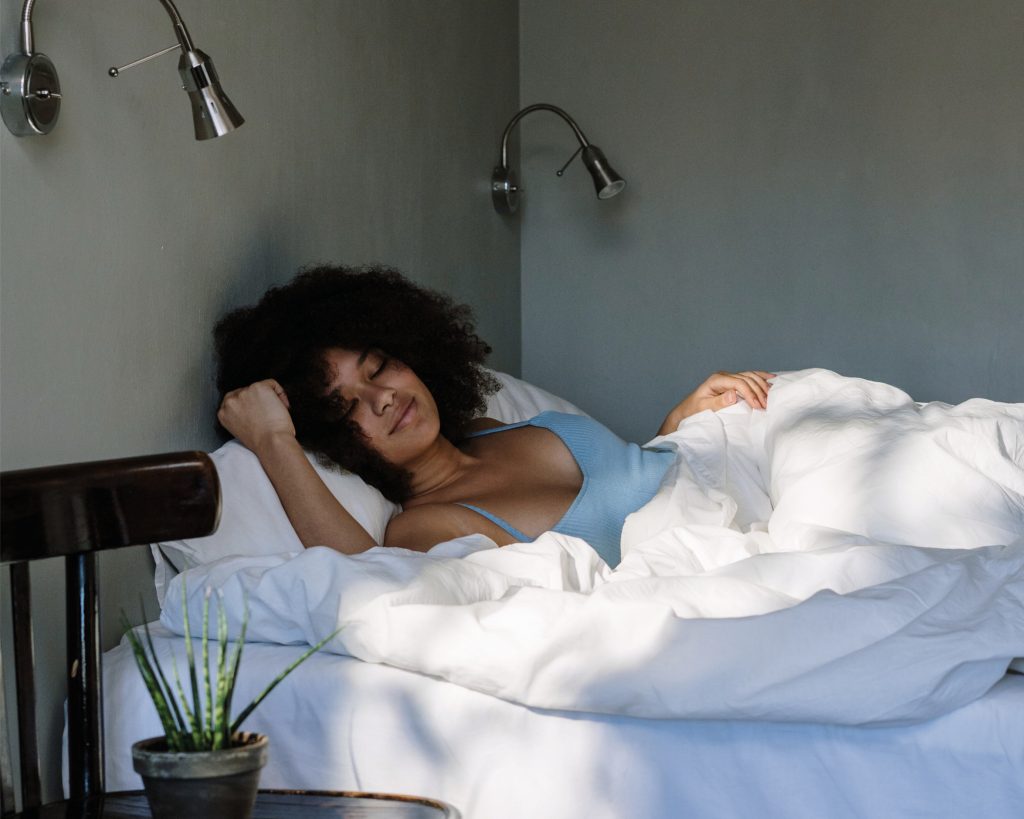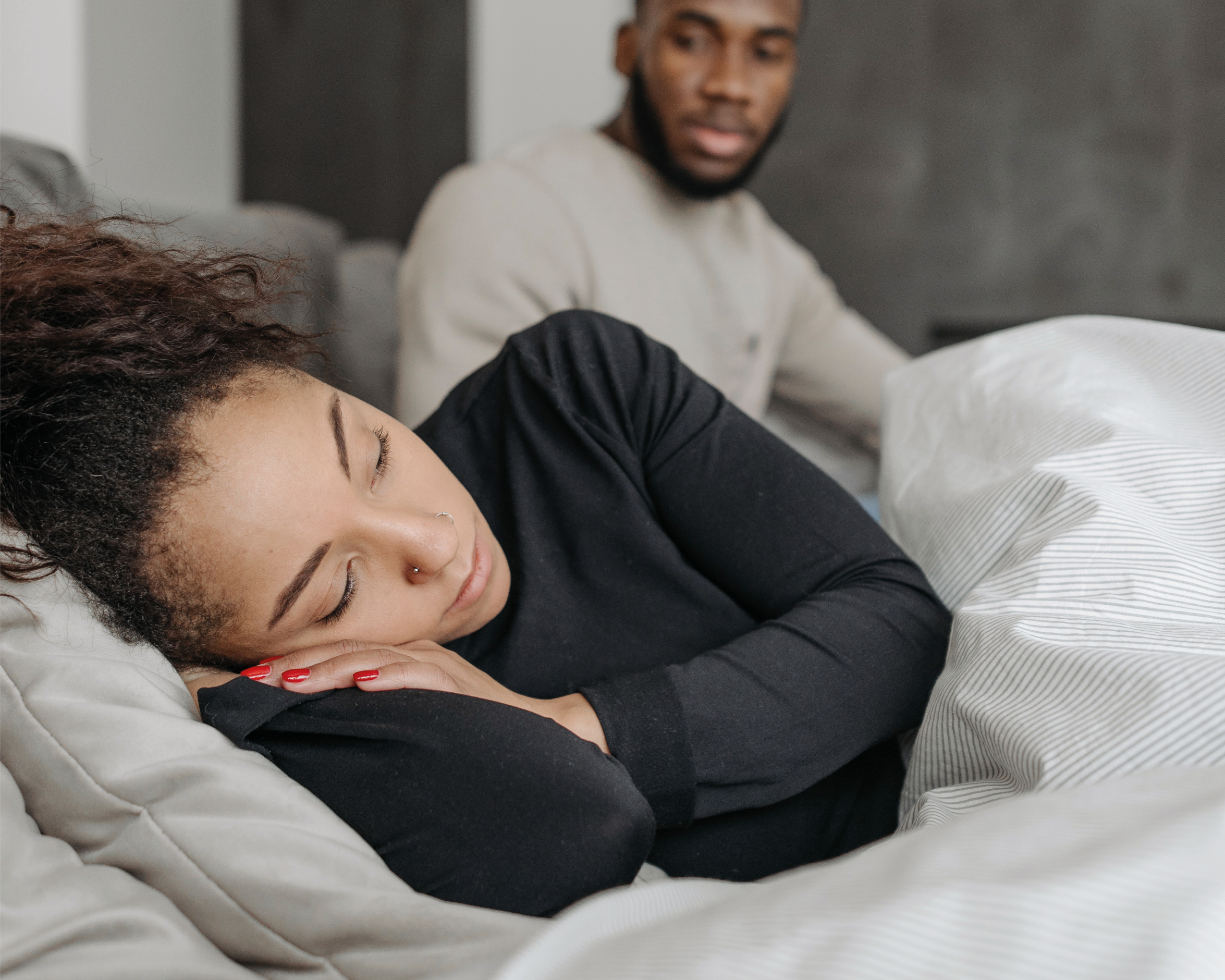Does love and marriage have to mean never getting a good night’s sleep again?
Sharing a bed has been found to provide a heightened sense of companionship, intimacy, shared experiences, as well as reaffirming a couple’s commitment. But what happens when your co-sleeping becomes a nightmare as your partner snores and tosses, breaking your sleep cycle and leaving you grumpy the next day? bad sleep becoming a bad romance? ‘One of the main functions of sleep is to restore homeostasis in the brain and body by facilitating cell reparation and removing waste products,’ explains Dr Mariza van Wyk, a neuropsychologist and sleep scientist.
On a mental and emotional level, sleep also supports information processing, problem solving, memory consolidation and emotional processing and regulation, she says. ‘These different processes take place during specific sleep stages at specific times of the night. If these processes are disrupted or skipped altogether, it might result in a person feeling physically unwell, experiencing concentration and memory difficulties, feeling irritable, moody and even tearful.’
Sleep, especially the all-important rapid-eye movement (REM) sleep state, refills your ‘emotional tank’, says Dr Van Wyk. ‘If, after a night of disrupted sleep you wake up with a low or empty tank, you might, depending on the degree of disruption, find yourself in a kind of “emotional fight or flight” state.’ The effects on interpersonal relationships can be disastrous as the sleep-deprived party becomes more emotional, exhibits less patience and becomes more intolerant of the small niggles or conflict areas of the relationship. If your partner’s snoring, restlessness or bed-hogging ways is bringing you and your relationship down is it time to make the kind of bedroom moves that have you sleeping in separate rooms?

Time for a sleep divorce?
There are many issues to consider when you make a decision about sleeping in separate beds or bedrooms, says psychologist and author Dr Akashni Maharaj. And a good place to start assessing the viability is with some of the main problems that might arise. For example, if a couple is already experiencing relationship problems outside of a bad sleep routine, it could exacerbate issues further. ‘Sleeping separately can pose an opportunity for partners to disconnect from one another and result in a further loss of intimacy,’ warns Dr Maharaj.
Resentment and distrust can creep in if both parties aren’t invested in the decision. ‘The mind can be a dangerous place, creating scenarios as to whether their partner loves them or not or whether they’re using the time apart to engage in communication with another person.’ Moreover, Dr Maharaji says couples may lose focus of the goals of the relationship if they tend to spend lots more time alone in their respective rooms. This doesn’t mean that choosing to sleep separately is off the table for lovebirds who are otherwise secure and happy in their daily interactions. ‘If a couple is in a healthy relationship, the lines of communication will be open, honest and transparent,’ says Dr Maharaj. ‘They will understand how bad sleep patterns affect each other and their relationship,and will be able to communicate freely their need for separate beds or rooms or a good night’s sleep.’
If the relationship is emotionally stable,she says, this decision will be accepted openly and honestly without fear of abandonment, rejection or disconnection. With better sleep, couples will be able to operate at their peak and focus their energies on the positive, rather than taking out their grumpiness, tiredness and restlessness on the person they feel has caused their sleep disturbance.‘Just remember,’ says Dr Maharaj,‘that sleeping together doesn’t necessarily guarantee a marriage will be “safe”, any more than believing sleeping apart will ruin it.’
Try this instead
Not everyone can afford the luxury of a second master room. If you and your honey are struggling to get some Zs together, there are other techniques that might help you get a good night’s rest.
Good sleep hygiene
Whether one person is a light sleeper, both partners are light sleepers, or you are a new couple getting used to each other, good sleep hygiene from both partners is very important,’ says Dr Van Wyk.This means agreeing and sticking to a bedtime where you go to sleep at the same time, cut out the late-night caffeine, alcohol and snacks, and avoiding devices an hour before bedtime, both because of blue light exposure and information overload in engagement with the outside world. ‘Rather use that time to connect and/or unwind together. Practicing good sleep hygiene is much easier when partners do it together,and beneficial whether you’re experiencing sleeping problems or not.’
Tell bedtime stories
In a 2014 study ‘Daily Self-Disclosure and Sleep in Couples’, researchers found that people in healthy marriages who spoke intimately just before bedtime, sharing their feelings about their day, improved the overall quality of sleep for women and decreased the amount of wakefulness for men.
Sleep therapies
Some of the most common sleep disorders that affect couples are snoring, sleep apnoea, insomnia, sleep deprivation, circadian rhythm disruptions, teeth grinding and restless legs syndrome. Each of these has its related pathologies and strategies, such as CPAP therapy for snoring and cognitive behavioural therapy for insomnia. Don’t hesitate to speak to your GP or sleep scientist at your closest sleep institute to diagnose your condition and help you find a solution.
Words by Lena Sotherin
Photography Courtesy Images





